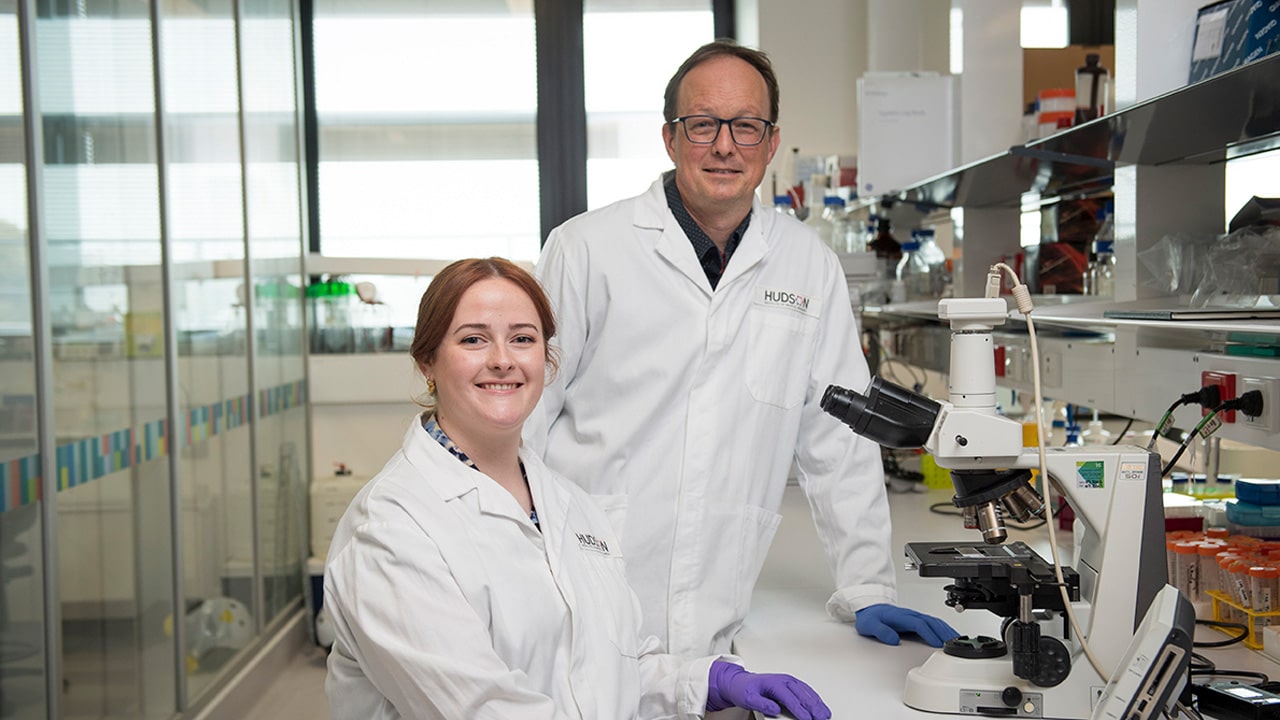Life as an explorer: mentors in science
By Rob Clancy, staff writer

Each year Hudson Institute senior scientists mentor more than 170 Honours, Masters and PhD students. Ellen Jarred, PhD candidate, and her supervisor, Associate Professor Patrick Western, share their research and the vital roll of mentors in science.
PhD student | Dr Ellen Jarred
What is your research about? We study how information is programmed into eggs (oocytes) to produce healthy offspring and what happens if this information is disrupted. This non-genetic information is called ‘epigenetic’, or above the gene, and influences the combinations of genes turned on or off in cells.

We hope that our research will one day… determine how epigenetics is important in female reproductive health and oocytes, and how our lifestyle choices, such as our diet or the drugs we take, may influence our health, and potentially that of our future offspring.
I chose to study in Patrick’s group because … I was instantly intrigued by his work in epigenetics when I met him at Student Open Day. He is passionate about science and is a kind and approachable science mentor.
I chose this career because … being a scientist is like being an explorer – I get to dive into the world of the cell and make new discoveries about how our genes are regulated to make all the diverse cell types in our body.
The highlight of my year was … completing my PhD! This is something I had never imagined was possible, so it was a very proud moment to realise I had achieved this milestone.
The best part of my job … is getting to see under the microscope how clever (and beautiful) biology can be.
Science mentor | Associate Professor Patrick Western*
To succeed, a scientist needs … curiosity, a healthy dose of scepticism, resilience, and respect for the data. Believe in your ideas and persist when you think you are onto something new and exciting, but also keep your mind open to alternative possibilities.
As a mentor the most important things I can teach my team is … to be open, honest, and supportive. Enjoy your work, your successes and those of others – especially colleagues new to the research adventure.
The most fascinating thing about my research is … understanding how the amazing diversity of cell types arise from a single fertilised cell to form a highly complex individual. Epigenetics not only regulates cell formation and function but provides a potential interface between our environment and health. I aim to determine how epigenetics and lifestyle choices influence development and health in ourselves plus our offspring.
*A/Prof Western co-chairs Hudson Institute’s Education and Training Committee.
About Hudson Institute
Hudson Institute’ s research programs deliver in three areas of medical need – inflammation, cancer, women’s and newborn health. More
Hudson News
Get the inside view on discoveries and patient stories
“Thank you Hudson Institute researchers. Your work brings such hope to all women with ovarian cancer knowing that potentially women in the future won't have to go through what we have!”







